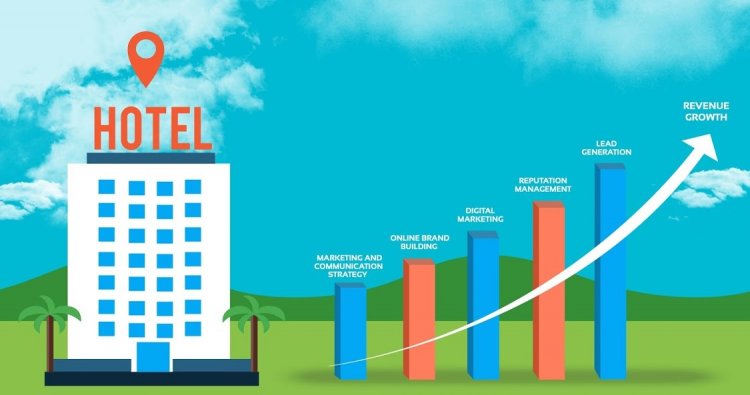Key Strategies for Building a Successful Hotel Business
Discover the key strategies for building a successful hotel business. Learn how to manage operations, attract guests, and increase profitability.

The hotel industry is a competitive and dynamic sector that requires a strategic approach to succeed. Building a successful hotel business involves a combination of factors, including market research and analysis, financial planning and management, customer service and experience design, technology adoption and integration, employee management and development, partnerships and networking, reputation and brand management, operations and process optimization, sustainability and environmental stewardship, and online presence and digital marketing. In this article, we will explore these key strategies in detail and provide insights on how hotel businesses can effectively implement them to achieve success.
Market Research and Analysis
Before starting a hotel business, it is important to conduct thorough market research and analysis to understand the target market, competition, and industry trends. This will help you identify opportunities and make informed decisions about the location, services, and pricing of your hotel.
Financial Planning and Management
Financial planning and management are essential for the success of any business, and the hotel industry is no exception. The hotel business should create a comprehensive financial plan that includes budgeting, forecasting, and cost management. The financial plan should take into account the costs associated with building and operating the hotel, as well as the revenue projections. Effective financial management helps in ensuring that the business has sufficient funds to meet its operational and growth needs, and helps in maximizing the return on investment.
Customer Service and Experience Design
Customer satisfaction is the key to success in the hotel industry. The hotel business should focus on providing excellent customer service and creating memorable experiences for its guests. This can be achieved by designing the customer experience around the guests needs and preferences, providing personalized attention, and using technology to enhance the experience. The hotel business should also regularly collect feedback from guests and use this information to continuously improve the customer experience.
Technology Adoption and Integration
Technology plays an important role in the hotel industry, and it is essential for the hotel business to adopt and integrate technology into its operations. Technology can help in streamlining operations, improving efficiency, enhancing the customer experience, and providing real-time data and insights. The hotel business should assess its technology needs and invest in technology solutions that can help meet its operational and business objectives.
Employee Management and Development
The success of the hotel business is heavily dependent on the performance of its employees. The hotel business should invest in employee management and development to ensure that its employees are motivated, skilled, and able to deliver high-quality service to guests. Employee management includes recruiting, training, and retaining the best talent, while employee development focuses on providing employees with opportunities for professional growth and advancement.
Partnerships and Networking
Partnerships and networking can help a hotel business expand its reach, increase its customer base, and generate new business opportunities. The hotel business should seek partnerships with local businesses, organizations, and suppliers, and participate in industry events and trade shows to build relationships and promote its brand.
Reputation and Brand Management
The reputation and brand of the hotel business are important assets that need to be carefully managed. The hotel business should focus on building and maintaining a strong reputation by delivering high-quality service, being transparent and trustworthy, and consistently meeting the expectations of its guests. The hotel business should also invest in brand management to ensure that its brand is differentiated, memorable, and consistent across all touchpoints.
Operations and Process Optimization
Efficiency and productivity are critical in the hotel industry, and the hotel business should focus on optimizing its operations and processes. This includes streamlining operations, reducing waste, improving efficiency, and using technology to automate routine tasks. The hotel business should also regularly review and assess its operations and processes to identify areas for improvement and implement changes to increase efficiency and productivity.
Sustainability and Environmental Stewardship
Sustainability and environmental stewardship are becoming increasingly important in the hotel industry, and the hotel business should focus on reducing its environmental impact and promoting sustainable practices. This includes reducing energy and water usage, using environmentally-friendly products, and engaging guests in sustainability initiatives. The hotel business should also consider the environmental impact of its operations and continuously seek ways to reduce its carbon footprint and promote sustainability.
Online Presence and Digital Marketing
A strong online presence and digital marketing strategy are essential for success in the hotel industry. The hotel business should focus on building a professional website, engaging with guests on social media, and managing its online reputation. The hotel should also invest in digital marketing strategies such as search engine optimization, online advertising, email marketing, and content marketing to reach its target audience and promote its brand.
In conclusion, building a successful hotel business requires a focus on market research and analysis, financial planning and management, customer service and experience design, technology adoption and integration, employee management and development, partnerships and networking, reputation and brand management, operations and process optimization, sustainability and environmental stewardship, and online presence and digital marketing. The hotel business should continuously assess its strategy and operations, identify areas for improvement, and make changes to ensure that it remains competitive and successful in the hotel industry.
What's Your Reaction?







































































































